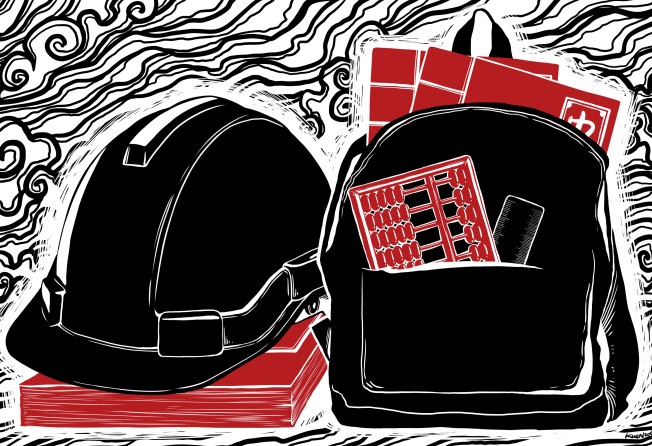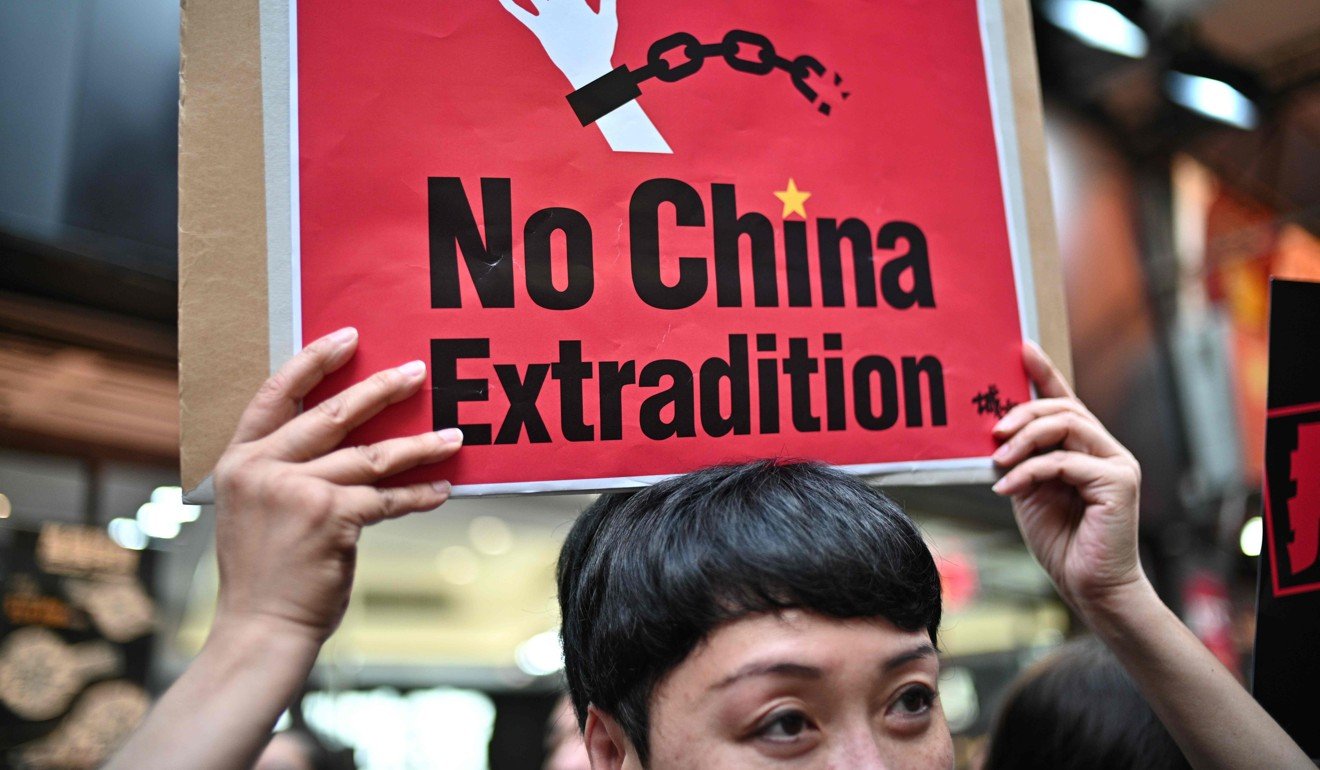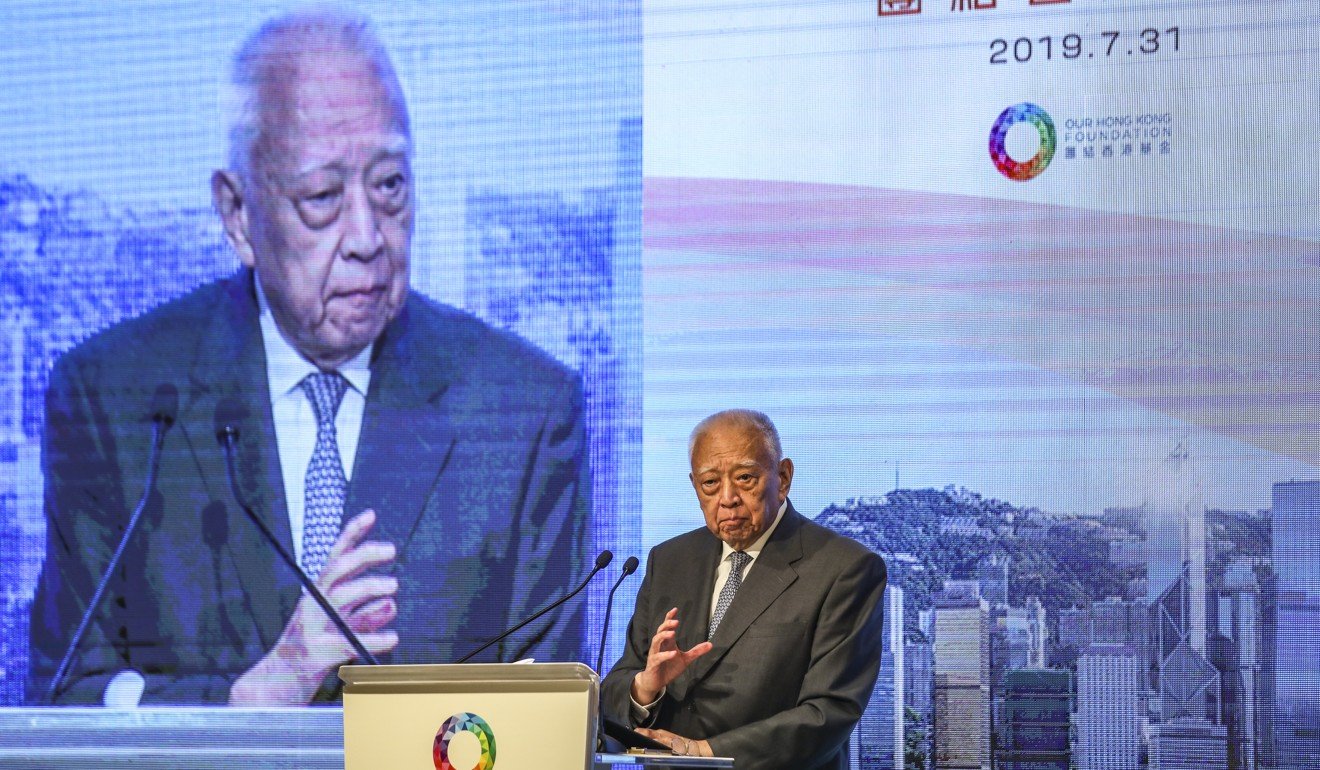The trouble with trying to turn Hong Kong’s young people into ‘patriotic youth’
- In a series of in-depth articles on the unrest rocking Hong Kong, the Post goes behind the headlines to look at the underlying issues, current state of affairs, and where it is all heading
- Here we look at how the city’s government has poured millions of dollars into programmes to expose the younger generation to mainland China but the campaign has failed to foster national pride

When Kathy Tang (not her real name) and her fellow Hong Kong interns arrived at the Palace Museum in Beijing’s Forbidden City in 2017, they received a royal welcome.
High hopes were placed on this first batch of 15 young Hongkongers hand-picked by the Hong Kong government as part of the celebration for the 20th anniversary of Hong Kong’s handover to China in 2017 – the year that Carrie Lam Cheng Yuet-ngor took office as the city’s chief executive.
These university students were to set a shining example for the next generation of Hongkongers: to be patriotic youth who were eager to “understand their mother country’s culture” and who would be pioneers to “work and have exchanges with their mainland counterparts”.
“We were being bused in and out, got exclusive access to areas that are off limits to tourists. They went out of their way to treat us as privileged guests valued and welcomed by the country,” Tang said.
For six weeks, Tang enjoyed working inside the Forbidden City, with all her costs covered by the Hong Kong government. Two years later, the arts graduate has been out in sweltering heat every weekend since June to protest against Lam’s now-abandoned extradition bill, which would have allowed suspects to be transferred to mainland China.
Tang, who says she remains passionate about Chinese culture and history, sees no conflict in her position.
“On the surface, the government might think I’m an easy target to be moulded into a patriotic youth – that is by their standard – because of my interest in Chinese culture,” she said. “But I see my interest and my political position as separate. My love for Chinese culture doesn’t make me trust or like the Chinese legal and political system more.”
Tang exemplifies the failure of the Hong Kong government’s concerted efforts to instil a “national identity” among younger generations and see their future as tied to the mainland. Instead, tens of thousands of mostly young people have taken to the streets for more than two months, voicing opposition to the government and the police and creating the city’s biggest political crisis since 1997.

The crisis comes five years after Hong Kong was rocked by Occupy Central, another largely youth-driven movement that blocked part of Central district for 79 days over universal suffrage.
Since then, the Hong Kong and central governments have seen “youth” as a pressing issue.
Chinese President Xi Jinping highlighted it at Lam’s inauguration on July 1, 2017, the 20th anniversary of Hong Kong’s handover.
“[The Hong Kong government] shall put high attention and much effort on guiding and strengthening patriotic education among youth, and shall support and give care to help the youth to grow healthily,” Xi said.
A year later, the central government’s liaison office in Hong Kong boasted of the progress made, saying that in the past year “under the guidance of President Xi, youth work in Hong Kong has entered a new era. Young people in Hong Kong have increasingly realised that their new way forward is to integrate into the grand development plan of the country and the Greater Bay Area.”
To realise those ambitions, the Hong Kong government has poured millions into two major programmes run by the Home Affairs Bureau – one scheme for youth internships and another for youth exchanges in mainland China.
The two schemes are meant to “boost national identity among students” and help them to “understand opportunities in the mainland”, and their budgets have grown steadily over the past few years. In 2019, the government earmarked HK$77 million (US$9.8 million) to fund the internship programme, up from HK$24 million in 2014. The total number of sponsored internships has also grown from 38 in 2014 to 149 in 2019, while the number of exchange programmes also increased threefold.
Yet, just a year after the liaison office’s boast, angry young protesters stormed Hong Kong’s Legislative Council and were waging pitched battles with police.
Observers have traced the discontent to various sources – from housing to jobs to social mobility – but a key factor is the negative perception of mainland China, something reflected in the share of the population willing to describe themselves as Chinese citizens.
According to the public opinion programme under the University of Hong Kong, the number of Hong Kong people identifying as Chinese has fallen to the lowest levels since 1997.
Of the 1,015 respondents surveyed during July 17 to 20, 53 per cent saw themselves as “Hongkongers” while only 11 per cent saw themselves as “Chinese”. Another 12 per cent identified themselves as “Chinese in Hong Kong” while 23 per cent saw themselves as “Hongkongers in China”.
When asked if they were proud of being a Chinese national, 71 per cent said “no”. That figure rose to 90 per cent among people aged 18 to 29.
At the same time, Hong Kong society is becoming much more politicised. There were 13,158 protests in 2016, up from 2,228 in 2006, according to Hong Kong police.
Two days after the storming of the Legco, former Hong Kong leader Tung Chee-hwa pinned part of the problem on the decision to teach liberal studies at secondary schools, courses that were introduced while Tung was chief executive.
“The liberal studies curriculum is a failure,” Tung, now a vice-chairman of the nation’s top political advisory body, said. “It is one of the reasons behind the youth problems today.”

Others said that taking Chinese history out of the compulsory secondary school curriculum also helped weaken national identity among students and politicise their views.
The answer, they say, is to expose young people to Chinese culture and influence. Over the time, it is hoped, the youth will come to appreciate the nation’s history and culture and be proud of being Chinese.
Earlier this month, Xu Luying, a spokeswoman for the Hong Kong and Macau Affairs Office, said that if the young people of Hong Kong could visit the “motherland of China more and broaden their world view, they will come to see that our country is at a critical stage of renaissance”.
“If they tie their future tightly with the nation’s development, they will have a wide path ahead of them into the bright future,” Xu said.
But, Tang’s case shows the inadequacy of this approach. The arts student said she marched against the bill not because of her lack of understanding and appreciation of Chinese history and culture. In addition to visiting various mainland Chinese cities with her family and her six-week internship in Beijing, Tang took part in another two-month study programme on the mainland provided by a non-government organisation.
“I’m interested in Chinese culture because contemporary Chinese literature fascinates me. Many great Chinese writers who are passionate about Chinese culture are at the same time fierce critics of the Communist Party,” she said. “When I look at Chinese society today, I can’t find the cultural traits we are proud of. It is full of lies and censorship and has no place for dissidents and human rights.”
Alex Fan Hoi-kit, a committee member of the government’s Youth Development Commission (YDC), said it was unrealistic to think that the government’s short-term trips and programmes would make a young person more patriotic.
“[Many ask why we] have put so many resources into these programmes and yet these young people still end up protesting in the streets,” Fan said.
“My view is, however, that we should not be measuring the cost and effect with these criteria.”
Fan said a more practical goal would be to help Hong Kong’s young people have some basic understanding of the country and develop a view of it.
“These are achievable aims, but whether or not this ‘view’ turns out to be positive or not is not guaranteed. By exposing young people to the country, assisting them in making a more informed choice on their political views and their future, I would say it is already successful,” he said.
Fan added that from his experience, shorter programmes did not really change the participants’ views of China.
“Usually internship programmes have a greater impact because the duration is longer, and the participants will experience working with actual companies, which allows them to understand more of the systems and people on the mainland. But that does not mean it will make them want to go work on the mainland,” he said.
Surveys suggest that only a minority of young Hongkongers would be interested in taking up a job across the border. The Hong Kong Guangdong Youth Association and the Proactive Think Tank polled more than 800 people aged 15-39 in January and found that less than a quarter were willing to leave Hong Kong and work in neighbouring Guangdong province.
Fan said he expected interest among Hong Kong’s young people in working across the border would grow with greater financial support from the government. But their views about China would only change when the country made real progress in “soft infrastructure” – such as the rule of law.
And familiarity does bring more understanding, if not acceptance.
Angel Ip Hiu-wing, 24, who spent five weeks interning at a law office in Shanghai this summer, said she noticed some changes in perception among her fellow Hongkongers.
“Some of my Hong Kong peers have not been to the mainland for quite a long while, not to mention working there,” said Ip, who recently completed her undergraduate studies in the China University of Political Science and Law in Beijing.
“Some of their views changed once they understood more of how things actually operate,” she said. “For instance, we have ... worked at law firms in Shanghai that operate in a very organised and institutionalised manner – just like the ones in Hong Kong.”
But she also said it would take time for the younger generation in Hong Kong to reduce their mistrust.
“These programmes have only been in place for the last four or five years. It will take time for us to truly see the impact.”
But one 23-year-old University of Hong Kong graduate who went on a week-long YDC-sponsored trip to Harbin last year said the government programmes would not change any minds.
“Nothing is more important than preserving Hong Kong’s core values here, such as the rule of law, and nothing is more important than the government being able to solve livelihood problems,” said the graduate, who did not want to be identified.
“[However] I believe that ultimately we will be ‘mainlandised’ by the Chinese political system and structure, and that cannot be altered. In a way, taking part in these programmes would help youth to experience the transition more smoothly.”